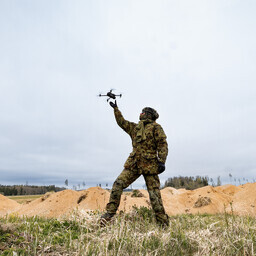The Estonian Defense Forces provide training to conscripts but acknowledge that it is not yet sufficient for the future. Arbo Probal, head of unmanned systems at the Defense Forces, stated that the training is sufficient for now but not yet adequate for the future. He emphasized that the training is continuously developed and must remain up-to-date.
Conscripts initially receive basic training, where they learn camouflage and concealment. Later, drone simulation is added so that soldiers can gain practical experience. Martin Herem, former head of the Defense Forces, said that the development of anti-drone training is too slow.
Herem stressed that Ukraine's experience shows that simple tools like pump-action shotguns and fishing nets are effective in countering drones. He said that in Estonia, such solutions are not sufficiently trusted. Herem recommended using simple methods, such as observing the sky and installing fishing nets.
Ilmar Raag, a reserve officer, said that Estonia lacks a systematic approach to combating drones. He noted that the Defense Forces are still recruiting people to work on this issue. Raag emphasized that countering drones requires both electronic means and simple methods.
In conclusion, experts emphasized that anti-drone activities must be multifaceted and include both electronic means and simple methods. Herem said that the main anti-drone equipment could be acquired in Estonia within weeks or months.

